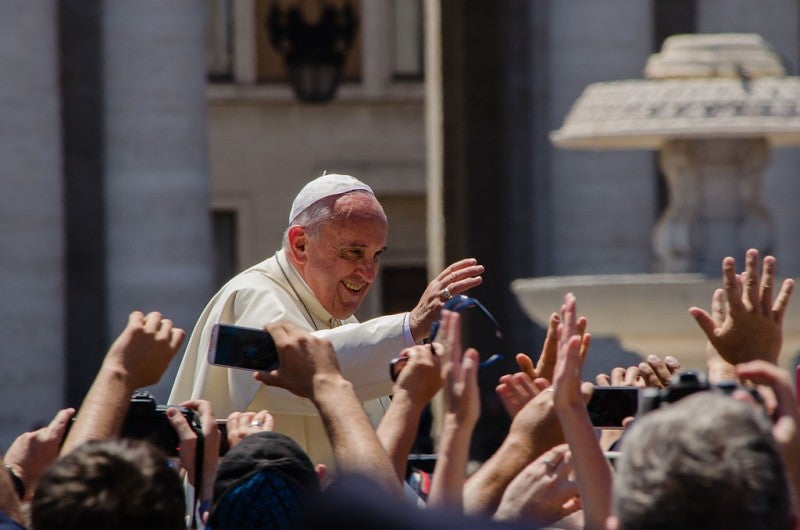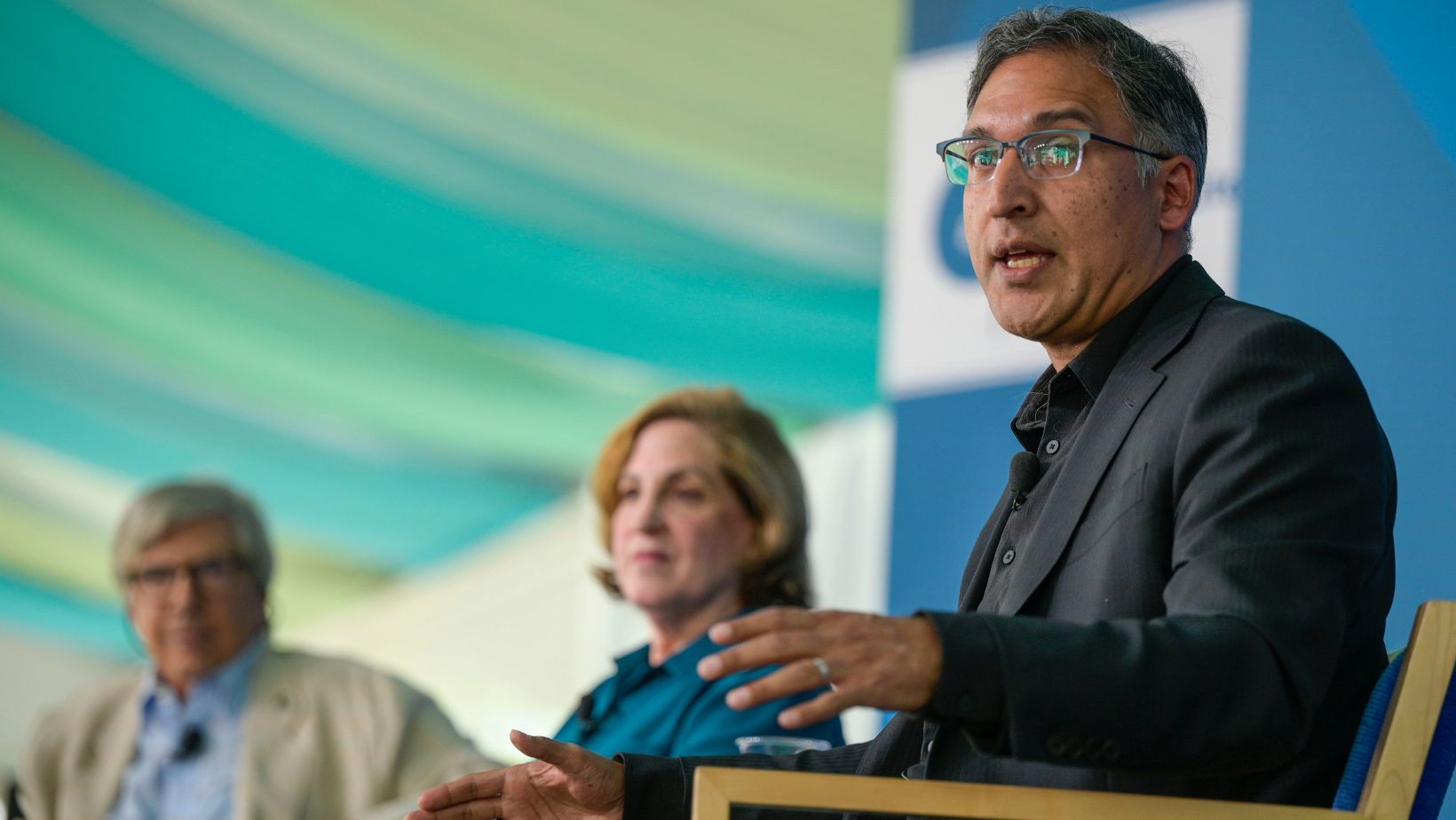
Photo Credit | Wikimedia Commons
One of the many moving moments of the visit last week of Pope Francis to New York City was the sight of the Pope side by side with a rabbi and imam at the 9/11 Memorial Museum. James Massa, the Brooklyn bishop who organized the service — which also included clergy of other faiths — explained to the press that it was not an interfaith but a multi-faith event, and the Pope’s remarks emphasized the need to settle conflict through dialogue. Powerful on its face, the event carried with it an implicit rebuke of the profiteers of hate who — from the Park 51 controversy centered a few blocks away from the event at Ground Zero, to the strident comments of two presidential candidates — represent the opposite of the Pope’s mission.
For those interested in American religious pluralism, the Pope’s nuanced approach to the relation between faiths was illuminating. It is credited by some to have arisen at least in part from a very personal source: his long-standing friendship with Abraham Skorka, an Argentinean chemist and rabbi, and the co-author with then-Jorge Mario Bergoglio, Archbishop of Buenos Aires, of the book “On Heaven and Earth,” a theological conversation on a range of issues designed to model respectful conversation between people who both differ and find points of confluence on critical ethical issues, and elevate the common humanity of the participants.
Pope Francis was not the first modern Pope to have had a transformative encounter with a Jewish friend that “de-otherized” that faith. Jerzy Kluger, who died in 2011, was a close friend of John Paul II when the two were boys growing up in Wadowice, Poland. John Paul went on to cite his early friendships with Kluger and other Jews as the wellspring of his efforts to improve Catholic-Jewish relations. The first pope to visit a synagogue, he repudiated the ancient idea that Jews had killed Jesus, and asked for forgiveness of violence against Jews committed in the name of the Catholic Church. He called Jews “our elder brothers.”
“Anti-Semitism,” John Paul II wrote in 1994, “is a great sin against humanity.”
Both these close friendships are a high-profile illustration of a phenomenon described by sociologists Robert Putnam and David Campbell as the “my pal Al” effect. Putnam and Campbell explain that their research showed that when people have friendships with those of other faiths, it not only decreases bias against those of that faith, but against those of all other faiths.
Projects that positively engage American religious diversity around the common good — on campuses, in communities, and through schools and youth service organizations — are the start of the robust conversations that can lead to a deeper understanding of those who otherwise might remain strangers and even adversaries.
While this political season may have engendered venom, the Pope and his Rabbi represent a balm. Programs that increase religious literacy and foster positive interactions between people of different faiths are essential to building the reconciled world we glimpsed possible through the Pontiff’s visit.
Meryl Justin Chertoff is executive director of the Aspen Institute Justice and Society Program.

